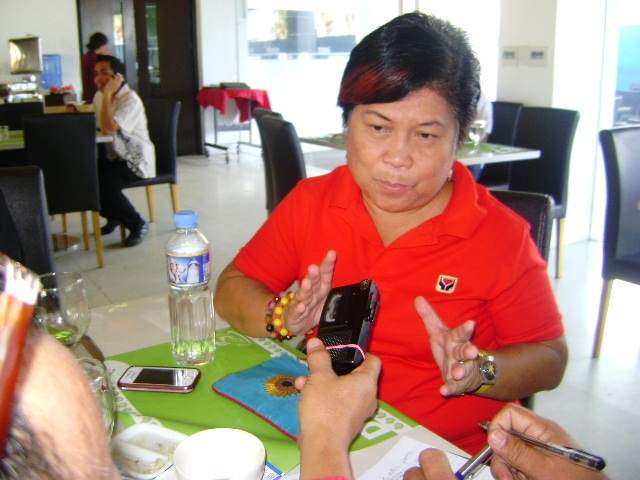Philippine News
Soliman only needs to explain what is the MCCT program, lawmaker says
MANILA — There is no need for Department of Social Welfare and Development (DSWD) Secretary Corazon “Dinky” Soliman to worry so much as all she needs to do is to explain to the public the government’s Modified Conditional Cash Transfer (MCCT) program, especially the campaign to provide livelihood training for street dwellers and educate them on the value of hard work and perseverance.
This was the advice of Iloilo Rep. Jerry Trenas on Monday since this new project will give more street dwellers the opportunity to experience the life of people who really work hard so that that they too would be inspired to stop begging and committing petty crimes and start working to earn a living.
Trenas observed that many of the street dwellers live the way they do because it is their choice. He noted that there were many people who were as uneducated and as misfortunate but were able to change their way of life through hard work and perseverance.
“Poverty is a choice for some of these people. I know a lot of people who are as misfortunate but were able to live decently because they would rather work rather than beg or steal. They are not rich but they have decent lives. They really work hard to earn their keep,” he said.
“Most if not all of the country’s streets dwellers beg for alms so they can buy solvent to sniff instead of buying food to eat. The little amount of money that they have would go to street gambling or cheap alcohol instead of buying things that they can use for a small business,” Trenas added.
The veteran Iloilo lawmaker said that there is nothing wrong with the decision of the DSWD to clean Metro Manila’s streets with vagrants and homeless families because this is part of the agency’s mandate as the government’s arm in providing preventive, protective, rehabilitative and developmental programs and services for the poor.
Trenas said the DSWD is also empowered under the law to provide assistance to local government units, non-government organizations, other national government agencies, people’s organizations, and other members of civil society in effectively implementing programs, projects and services that will alleviate poverty and empower disadvantaged individuals, families, and communities for an improved quality of life.
According to him, the decision of the DSWD to respond to requests made by LGUs for them to take custody of their street dwellers during the duration of Pope Francis’ visit to the Philippines was not meant to hide them from the pontiff but to guarantee their safety and the millions of people who went out to take a glimpse of the charismatic leader of the Roman Catholic Church.
He said the avalanche of people who trooped to Roxas Blvd. to see the Pope could have endangered the street dwellers, most of whom are small children, especially in the event of a stampede.
At the same time, the millions of people who went to saw the Pope were also kept safe from these vagrants, many of whom are small-time thieves and pickpockets.
“This is a non-issue. The DSWD should even be commended for taking action pro-actively which made the papal visit hassle-free. I think that the DSWD and the administration should just ignore those people criticizing the DSWD’s action because they have nothing good to say no matter what the government would do. Bisyo na nila yan (It’s been a bad habit),” Trenas explained.
“I would imagine that these same people would now be criticizing the government for not ensuring the safety of the street dwellers if something happened to any of them during the course of the papal visit,” he added.
What’s important, Trenas said, is the fact that no untoward incident happened during the duration of Pope Francis’ visit and all the security measures that were laid out by the government were executed flawlessly.






















